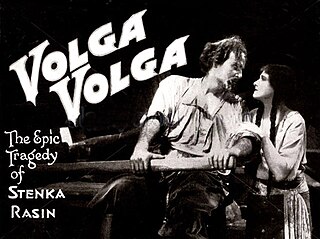Chaliapin may refer to:
- Feodor Chaliapin (1873-1938), Russian opera singer
- Boris Chaliapin, artist and illustrator, son of Feodor Chaliapin
- Feodor Chaliapin, Jr. (1905-1992), actor, son of Feodor Chaliapin
- 2562 Chaliapin, an asteroid
- Chaliapin festival, Gagino, a Russian music event

Feodor Ivanovich Chaliapin was a Russian opera singer. Possessing a deep and expressive bass voice, he enjoyed an important international career at major opera houses and is often credited with establishing the tradition of naturalistic acting in his chosen art form.

Boris Chaliapin (1904–1979) was the son of Russian opera singer Feodor Chaliapin and brother of The Name of the Rose actor Feodor Chaliapin, Jr.

Chaliapin festival is an annual open-air vocal event in Gagino village, Moscow region. The idea of the festival has been inspired by the story of Chaliapin's marriage with a young Italian ballerina Iola Tornagi in Gagino's church of All-Merciful Savior on July 27, 1898.
Launched on July 2002 to commemorate the remarkable wedding, the festival was at first an amateur concert of locals. However its publicity was soon fueled by a documentary "Marriage in Putyatino". The film by Dmitriy Stepanov a film director from nearby Sergiyev Posad was dedicated to Chaliapin's wedding and a joyful party which followed the ceremony at the couple friend's villa in Putyatino few kilometers from Gagino. Once shown on the Russian local and federal channels the film has made the place and the festival public.
Last years the festival stars the voices of the Bolshoi Theatre, Stanislavski music theatre, numerous professional and amateur musicians, including the locals. The event's repertory features the best of Chaliapin's legacy mixed with some folk and classical complements.
The organizing functions are shared among the locals, Interregional Chaliapin Center and the parish of the Gagino's churches.
| This disambiguation page lists articles associated with the title Chaliapin. If an internal link led you here, you may wish to change the link to point directly to the intended article. |









